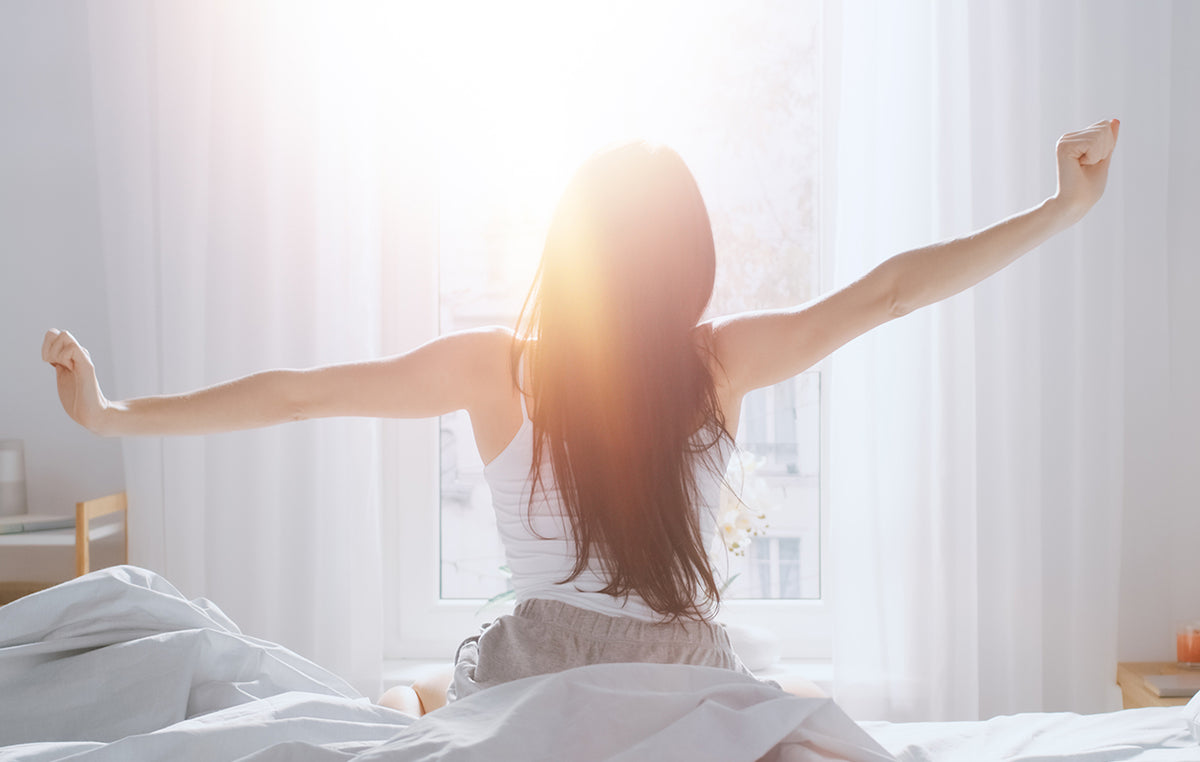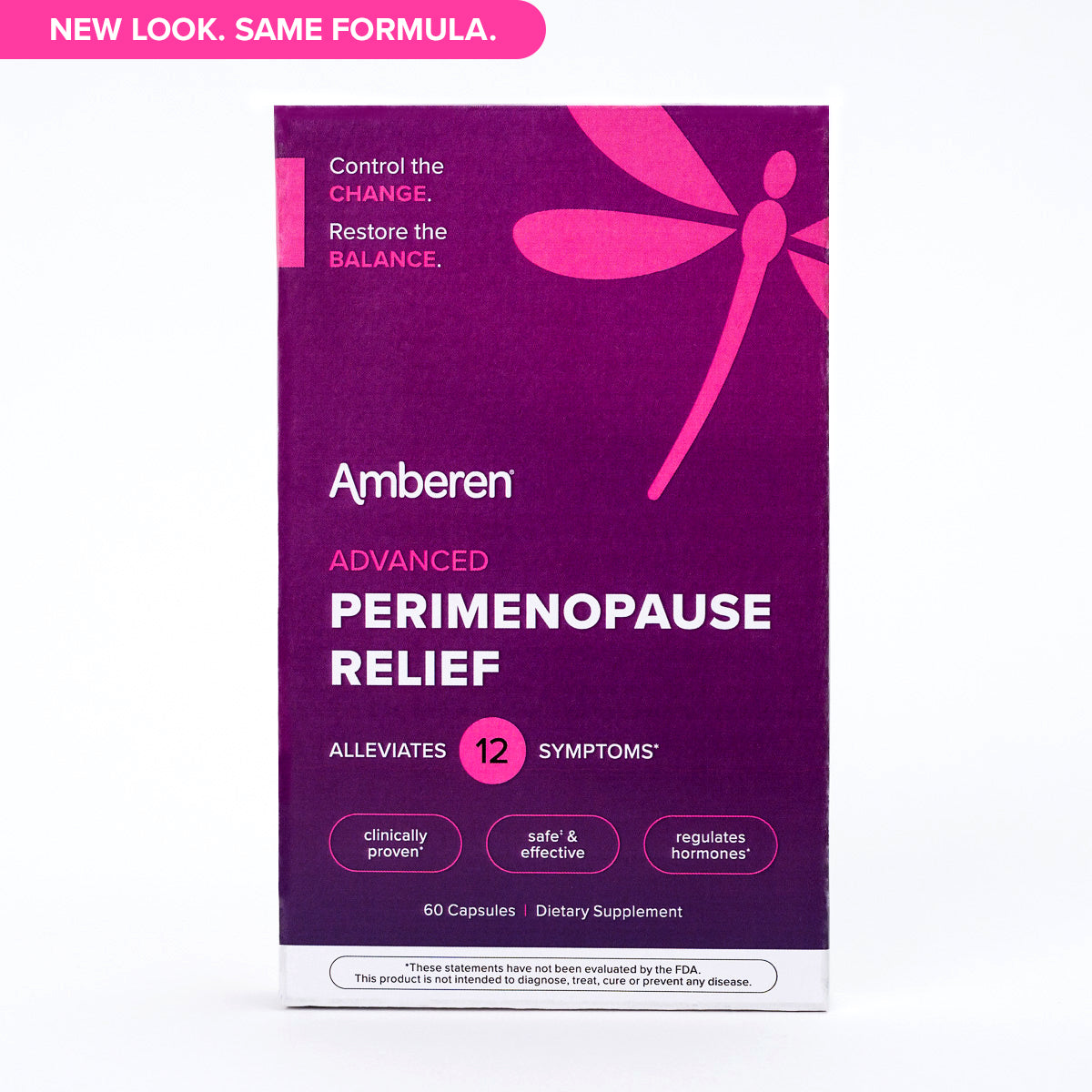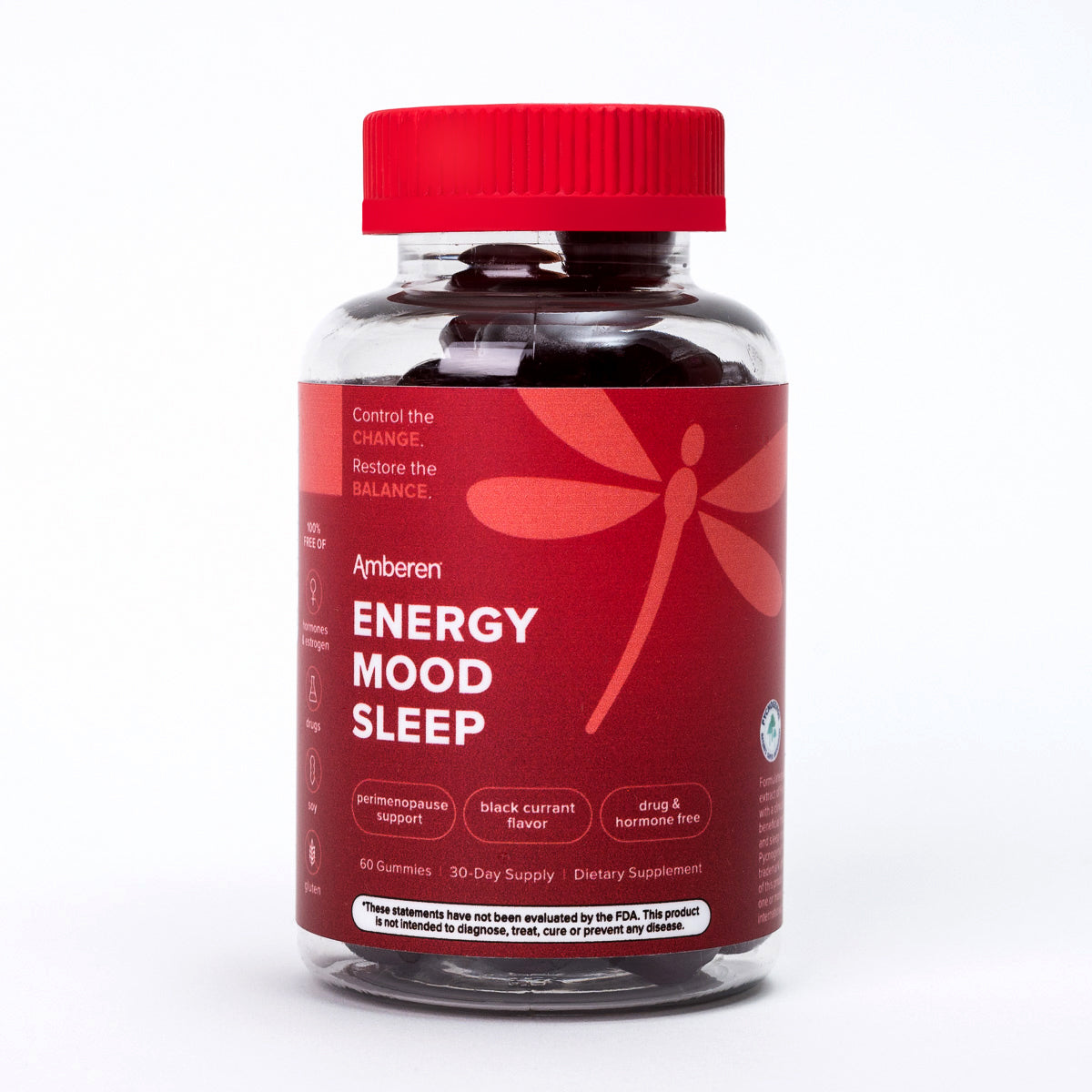
How to get a better night's sleep tonight

Ever have one of those nights when it’s well past midnight and you’re soaking wet from night sweats and bone tired? You’re not alone. According to the National Sleep Foundation, sleep problems begin with perimenopause (affecting 59% of women) and continue through post-menopause (impacting 61% of women). “A common question we get is about hot flashes, irritability and trouble sleeping,” says Kristin Dutton, Amberen Customer Care Supervisor. “And it all goes hand in hand.”
Sleep disturbances are caused by hormonal imbalance the body is going through, and they may start early in perimenopause. The hypothalamus, a part of the brain that plays a crucial role in regulating hormone production in the body, works overtime in a vain attempt to produce hormones and continues sending erratic signals. A hot flash awakens the brain from sleep and produces a change in body temperature that can cause sleeplessness. As a result, night sweats leave women soaked with sweat, shivering, and unable to fall back asleep.
The good news is, besides taking Amberen to manage sleeplessness and night sweats, there are plenty of tricks you can try to help you score more ZZZs. Check out these suggestions from the National Sleep Foundation:
• Keep the bedroom at a cool 65 degrees. Use a fan or A/C, and avoid heavy blankets.
• Stick with breathable fabrics, like cotton — it’s the coolest for sheets and pj’s.
• Establish a bedtime routine and stick to it.
• Watch what you eat and drink. Certain things, like alcohol, caffeine, spicy or acidic food or especially large meals can prevent you from staying asleep and even trigger a hot flash.
• Practice relaxation techniques like yoga, meditation, prayer or deep breathing before going to bed.
• Get 30 minutes of sunshine a day. You need melatonin to sleep.
• Breathe in lavender fragrance before going to bed. It lowers heart rate and blood pressure, promoting a more relaxed, restful sleep.
• Do not nap after 3 p.m.
• Keep TV out of the bedroom. If you need to filter out sounds, use a white noise machine, an air purifier or a fan.
• Keep it dark. Cover the blue power lights on all electronics in the room, use room-darkening shades and use low-wattage incandescent bulbs in light fixtures (energy-efficient bulbs are not as conducive to sleep).
• Stop using cell phones, computers and video games at least an hour before going to bed. Research suggests that the light emitted by these devices can disturb the body's circadian rhythm and delay the release of sleep-inducing melatonin.
• Finally, the next time you wake up in the middle of the night, after 20 minutes of trying to fall asleep, get up and do something relaxing until you feel sleepy. Lying in bed wide awake only causes you to worry about not sleeping…and that keeps you from sleeping.
This blog post and the recommendations made herein are provided for informational purposes only and are not intended to be used as healthcare advice. Individuals are encouraged to consult their healthcare provider with questions about their specific needs. The references provided in this blog post are identified for informational purposes only and such references and the underlying research, including the entities and individuals involved in the underlying research, did not involve Amberen and are not affiliated with Amberen or the makers of Amberen.
Right symptoms. Right phase. Right relief.
Find the Amberen product that’s best suited for your specific symptoms.
- Regular Price
- $29.99
- Sale Price
- Starting at $29.99
- Regular Price
-
- Unit Price
- per
- Regular Price
- $29.99
- Sale Price
- Starting at $29.99
- Regular Price
-
- Unit Price
- per
- Regular Price
- $32.99
- Sale Price
- Starting at $32.99
- Regular Price
-
- Unit Price
- per
- Unit Price
- per



